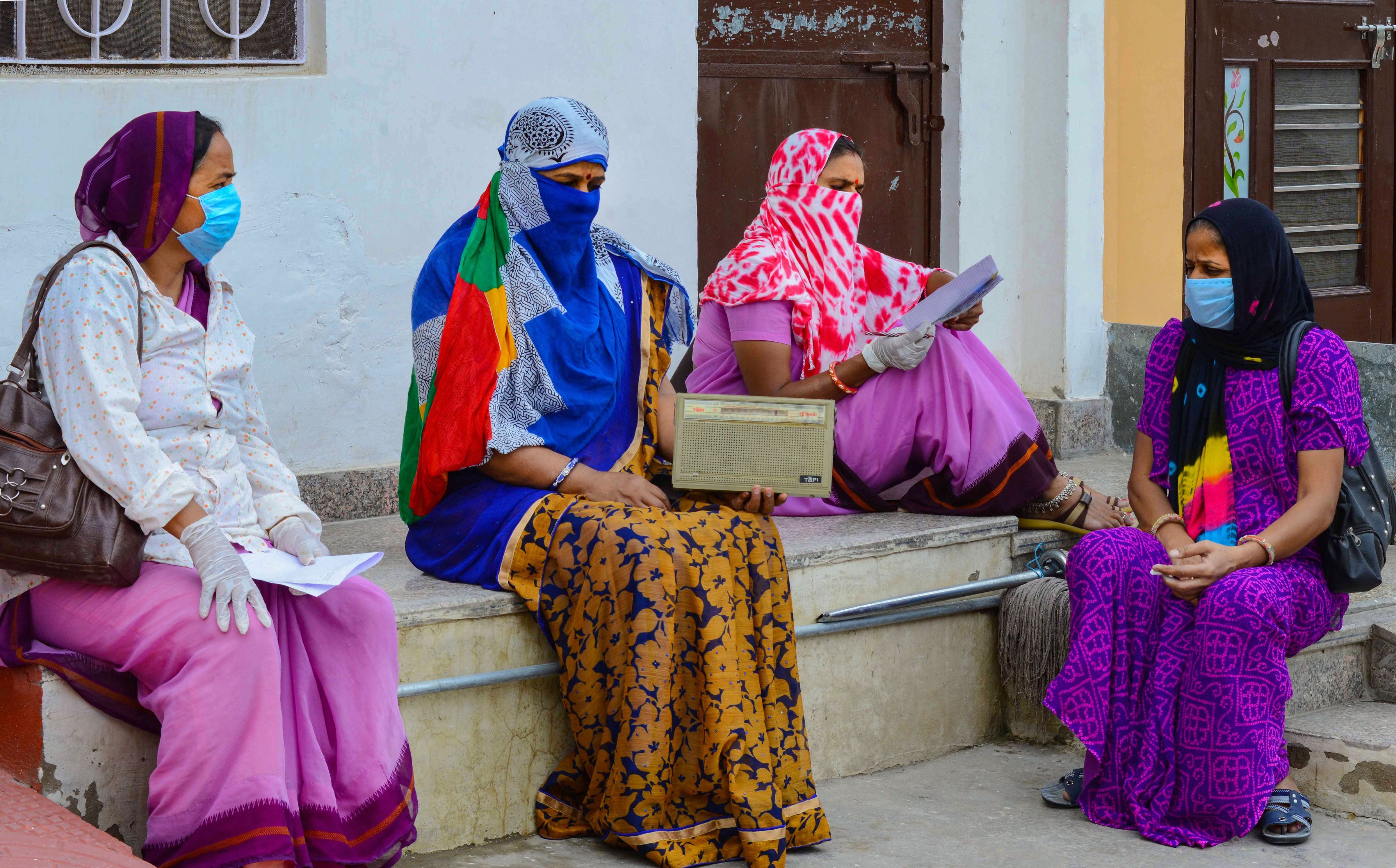Prime Minister Narendra Modi said on Sunday that the poor and labourers have been hit the hardest by the coronavirus crisis and that their pain cannot be explained in words.
In his monthly 'Mann ki Baat' radio address, Modi said all classes of people have suffered during the pandemic but it is the poor who have suffered the worst.
'Had our villages, towns, districts and states been self-reliant, problems facing us would not have been of such a magnitude as is evident today,' he said.
Everyone is working to help the poor and labourers, he said, and highlighted the railways' exercise to transport large numbers of migrant workers to their home.
'The path of our fight against coronavirus goes a long way. It is a calamity, a scourge that does not have an antidote in the entire world; there is no prior experience on that.... We are facing newer challenges and consequent hardships,' he pointed out.
All the countries hit by the killer virus face similar problems and India is no exception, the Prime Minister said in his address which came on the last day of the 4th phase of the nationwide coronavirus-induced lockdown.
'There is no section in our country unaffected by the difficulties caused by the affliction -- the most gravely affected by the crisis are the underprivileged labourers and workers. Their agony, their pain, their ordeal cannot be expressed in words. Who amongst us cannot understand and feel what they and their families are going through,' Modi said.
He said everyone is trying to share their distress and the torment.
'Our railway personnel are at it day and night. From the centre, states, to local governance bodies, everybody is toiling around the clock. The way our railway personnel are relentlessly engaged, they too are frontline corona warriors,' he said.
But the current scenario is an 'eye opener to happenings in the past' in the country. It is also an opportunity for scrutiny and lessons for the future, he said.
The distress the workforce is undergoing is representative of that of the country's eastern region, he said. 'The very region which possesses the capacity to be the country's growth engine...the eastern region needs development,' he asserted.
'Ever since the country offered me the opportunity to serve, we have accorded priority to the development of eastern India. In the last few years, much has been done in this direction which gives me inner satisfaction. And now, considering the migrant labourers, the need of the hour is devising a new solution...we are ceaselessly taking steps in that direction,' he said.
Skill mapping of labourers is being carried out, he said.
The establishment of a migration commission is being deliberated upon. Referring to the stimulus package, he said, recent decisions taken by the central government have opened up vast possibilities of village employment, self employment and small scale industry.
'The objective of these decisions is finding solutions to the situation, for the sake of a self-reliant India. Had our villages, towns, districts and states been self-reliant, problems facing us would not have been of such a magnitude as is evident today. But moving from darkness toward light is a human trait,' he said.
On his call for an Atmanirbhar Bharat or self-reliant India, Modi said people now have begun to take it as a movement of their own.
People are now buying only these local products, promoting 'vocal for local,' he said.
He also said people are helping out the needy and are innovating things in the time of the health crisis. Self-help groups are making face masks, education is being imparted online and labs are busy working on a vaccine to counter the novel coronavirus.
The Prime Minister also asked people to be 'extra careful' and stick to precautions like maintaining social distance and wearing masks as the economy gradually opens up.
He said that at the time of the last episode of 'Mann ki Baat', the passenger train services, busses and flights had come to a standstill.
'This time around much has resumed -- Shramik Special trains are operational; other special trains too have begun. With utmost precautions, flights have resumed; industry too is returning to normalcy,' he pointed out.
In a word of caution, Modi said as a major segment of economy opens up 'we need to be even extra alert and careful'.
'Whether it is the mandatory do gaaz ki doori (two yards of distancing), wearing face masks or staying at home to the best extent possible, there should be no laxity on our part in complete adherence (to the laid down norms),' he said.
Urging people against letting their guards down, the 'Prime Minister said after such 'austere penance, and after so many hardships', the country's deft handling of the situation should 'not go in vain'.
'We must not let this fight weaken. Becoming careless or lackadaisical cannot be an option. The fight against coronavirus is still equally serious. You, your family, may still face grave danger from coronavirus,' he cautioned.
Modi said when 'we glance at the world, we can actually experience the magnitude of the achievements of the people of India'.
'Our population itself is many times that of most countries. The challenges facing the country too are of a different kind, yet coronavirus did not spread as fast as it did in other countries of the world,' he said, adding that the mortality rate due to the virus too is a lot less in India.
'All of us deeply regret the loss that we had to undergo. But whatever we have been able to save is a result of the collective resolve of the country,' he said.











